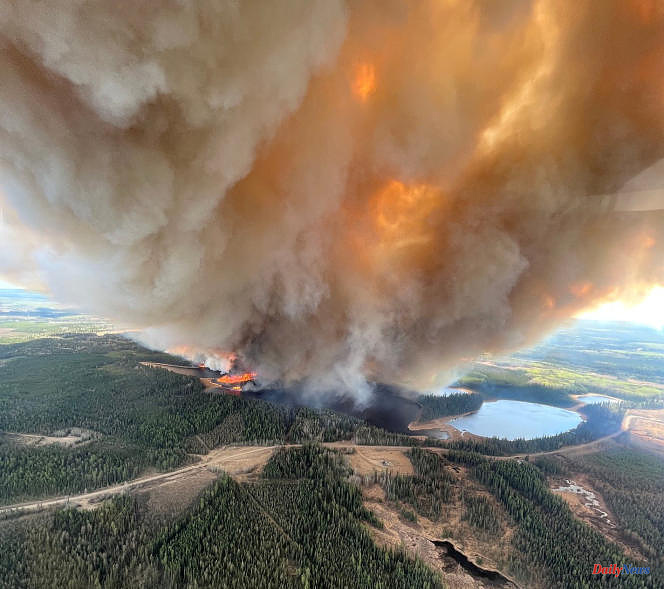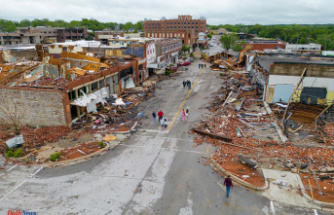The sudden onset of abnormally high temperatures, exceeding seasonal norms by 10°C in places in early May, triggered floods in western Canada but also dozens of fires, forcing thousands of people to flee. 'evacuation.
Western and central Canada, where much of the agricultural land is concentrated, is currently experiencing "abnormally dry" conditions, even "severe drought" in places, according to the latest Canadian government surveys.
In the province of Alberta, the most affected by forest fires currently, it is reported, Friday, May 5, more than 70 active fires, and several out of control. Some 13,000 residents are targeted by evacuation orders, according to authorities.
The main focus located in Fox Lake, in the north of the province, covers nearly 1,500 hectares and has already consumed a small community comprising about 20 houses.
British Columbia on the Pacific side is doubly affected: several fires are active inland, and the south is threatened by rapid snowmelt that has raised river levels, some of which have come out of their bed.
The rains could make the situation worse
According to the authorities, the heavy rains expected during the weekend could aggravate the situation. "Several days of unusually warm temperatures have resulted in rapid snowmelt and high flows across much of interior British Columbia, with severe flooding ongoing in some areas," provincial officials said. .
"Severe flooding is possible, and extreme flooding reaching historic levels is plausible, in areas that receive heavy rainfall in addition to rapid snowmelt," they added, noting that "maximum river levels are expected between Saturday and Monday.
In recent years, western Canada has been repeatedly hit by extreme weather events, the intensity and frequency of which are increased by global warming.
In addition to catastrophic flooding, British Columbia was also hit two years ago by the effects of a "historic" heat dome, which claimed hundreds of lives and was followed by large fires.












